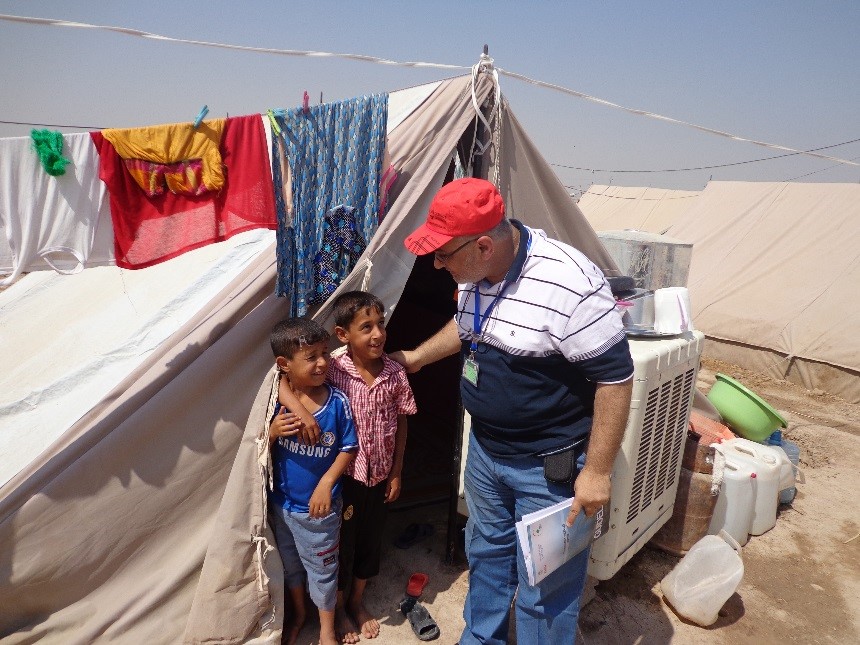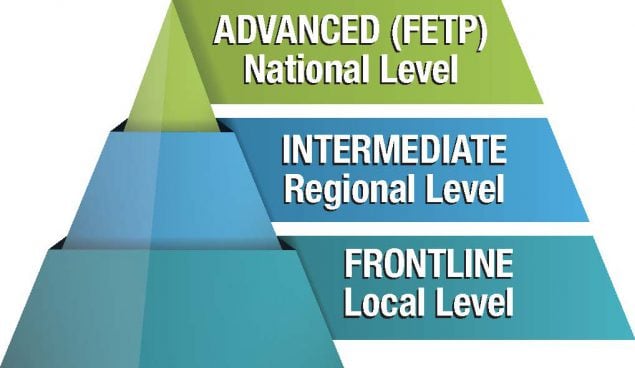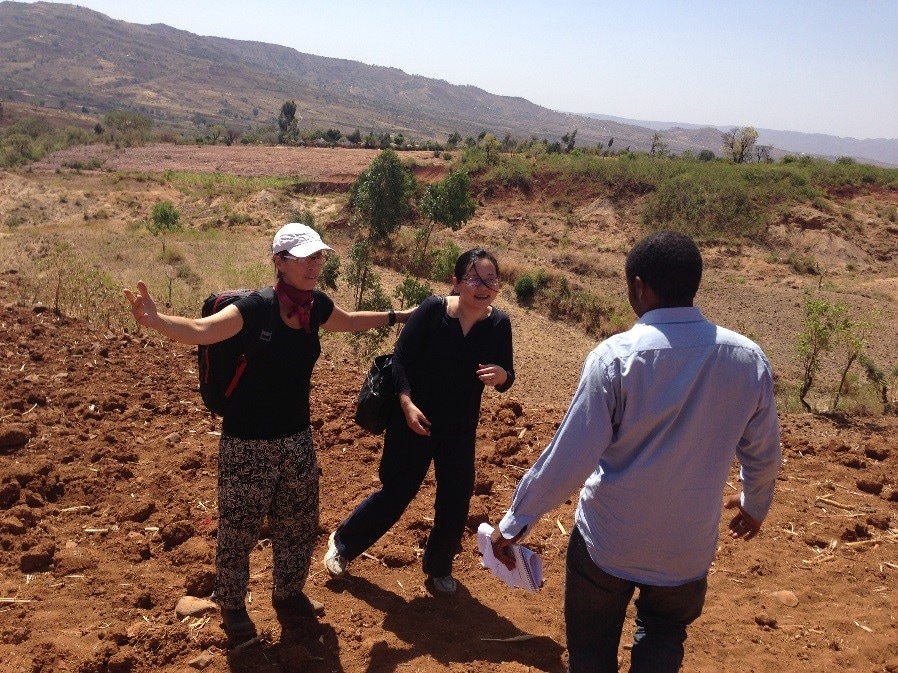How We Train

FETP Graduate Dr Wesam Shafiq conducts a health assessment in an IDP camp in Diyala Province, Iraq
Learning by Doing
CDC’s Field Epidemiology Training Program has a unique, applied training approach that focuses on learning by doing. FETP trainees (also known as residents, fellows, or officers) spend 75-80% of their time maximizing hands-on training in the field and only a limited amount of time in the classroom.
- Classroom time is spent learning the principles of epidemiology, disease surveillance, outbreak investigation, and biostatistics.
- Field placements give fellows hands-on experience investigating outbreaks, establishing and evaluating disease surveillance systems, designing and conducting public health studies, and training other healthcare workers.
With a focus on building competency outside of the classroom, our model differs from many other epidemiology training programs, such as traditional Master of Public Health (MPH) programs.
Personal attention
Another unique feature of FETPs is the relatively small size of the training cohort, which is typically between 10-15 residents. FETP cohorts are kept deliberately small to ensure that residents receive adequate supervision and mentorship throughout their training. Residents are typically recruited from within ministries of health or occasionally from other ministries, such as agriculture.

Levels of Learning
Our traditional field epidemiology training program is an intensive, two-year course. However, to fit the need for different skills across various levels of a country’s health system, we developed a three-tiered “pyramid” training model to build capacity at local, district, and national levels. All three tiers focus on learning by doing, and fellows’ time is spent mostly in the field, working on priority public health projects for their country and applying what they have learned in class.
- Advanced: This intensive two-year training enrolls experienced epidemiology health professionals and prepares them for leadership roles in ministries of health and other national-level government agencies
- Intermediate: The nine-month intermediate level prepares public health workers to support at the district level
- Frontline: The three month basic level prepares public health workers to support at local and community levels

Ethiopia FETP Resident Advisor Lucy Boulanger, EIS Officer Ulzi Orshihk Luvsanshara, and FETP Resident Dereje Seyoum investigate a cluster of unexplained deaths in Konso, Ethiopia, 2015.
Resident Advisors
In most cases, countries lack enough experts to mentor residents during the first few years of the program. In these situations, we place an expert field epidemiologist and trainer to serve as the “Resident Advisor” until enough residents graduate and can act as mentors and trainers.
Resident Advisors are usually graduates of CDC’s Epidemic Intelligence Service or another field epidemiology training program. Their role is to develop and implement the curriculum, ensure the scientific excellence of the training, and supervise the residents.
Support from CDC Headquarters
In addition to Resident Advisors, CDC also supports countries by sending medical officers, epidemiologists, health scientists, public health advisors, and instructional designers who can provide scientific expertise, training consultations, and other programmatic support and advice to help ministries of health implement FETPs.
CDC also develops customized classroom curricula for trainers to use in country to strengthen resident skills in epidemiology, biostatistics, management, and public health communication. We also help assess health systems, targeting training content and placement of residents in the field, to best meet the needs of the country or region.
For more information, see our noncommunicable disease training modules and other FETP training resources.
Leveraging Video Technology During COVID-19
During the COVID-19 pandemic, FETP adapted to travel constraints by utilizing video technology to connect program staff and residents and continue advancing field epidemiology capacities worldwide.
Through a series of orientation videos, CDC introduced residents to subject matter experts, provided a glimpse at the program’s structure and unique hands-on training approach. The video series also provided insights into resident advisor experiences and the importance of mentorship. Inclusive greetings in various languages highlighted CDC’s commitment to diversity.
As FETP adapted to unprecedented challenges, it further emphasized CDC’s dedication to advancing trainees skills worldwide, building capacity and promoting health equity, regardless of geographical constraints.